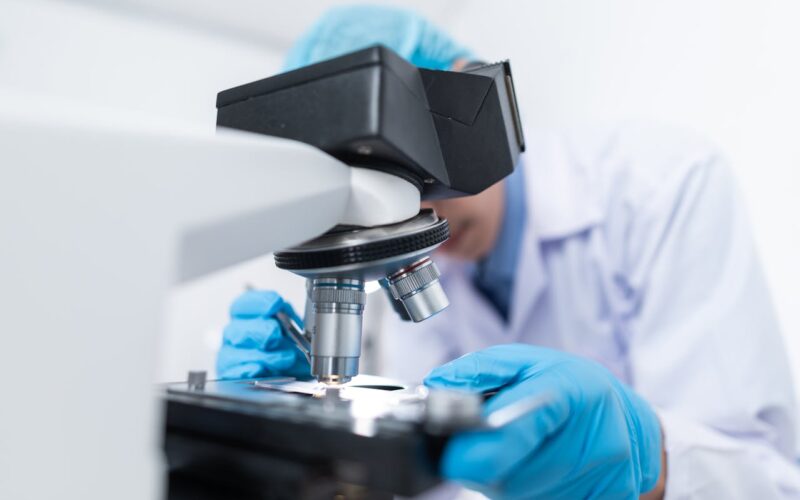In a significant leap forward for medical science, researchers have identified a major cause of inflammatory bowel disease (IBD), including Ulcerative Colitis, and have uncovered promising new avenues for treatment. This breakthrough, led by scientists at the Francis Crick Institute in collaboration with University College London and Imperial College London, marks a pivotal moment in the fight against these debilitating chronic conditions.
Uncovering the Culprit: The ETS2 Gene Enhancer
The crux of this discovery lies in a gene enhancer located in a region of DNA known as a “gene desert.” Unlike typical genes that code for proteins, gene deserts are stretches of DNA that do not produce proteins but can influence the activity of nearby genes. In this case, the enhancer affects the ETS2 gene, which is crucial in driving inflammation in IBD.
Ancient Genetic Variant: This gene enhancer is not new. It is an ancient variant that appeared between 500,000 and a million years ago, even present in Neanderthals. Historically, this variant likely provided an evolutionary advantage by enhancing the immune response to bacterial infections, which was crucial before the advent of antibiotics. This evolutionary legacy explains its prevalence today, with about 95% of IBD patients carrying one or two copies of this enhancer (MedXpress) (New Atlas).
The Mechanism of Inflammation
The researchers discovered that this enhancer activates specifically in immune cells called macrophages, which play a critical role in the body’s defense mechanism. Once activated, it boosts the production of the ETS2 protein, leading to increased inflammation. This inflammation is a hallmark of IBD, causing significant damage to the intestinal tissue.
ETS2 and Its Role: The study showed that higher activity of the ETS2 gene in macrophages correlates with a higher risk of inflammation. This finding is significant because it identifies a central pathway contributing to IBD. By targeting this pathway, scientists can develop more effective treatments. Several genes previously linked to bowel inflammation are positioned along the ETS2 pathway, further underscoring its importance (MedXpress) (New Atlas).
Treatment Potential and Challenges
MEK Inhibitors: Although there are no drugs specifically targeting ETS2, the research team found that MEK inhibitors, which are already used in cancer treatments, can indirectly reduce ETS2 activity. These inhibitors were effective in reducing inflammation in both macrophages and gut tissue samples from IBD patients. However, MEK inhibitors can cause side effects on other organs, which poses a challenge for their use in treating IBD (MedXpress) (New Atlas).
Targeted Drug Delivery: To overcome the challenge of side effects, researchers are exploring ways to deliver MEK inhibitors directly to macrophages. This targeted approach aims to minimize side effects while effectively reducing inflammation. As James Lee, the lead researcher, noted, “Excitingly, we’ve shown that this can be targeted therapeutically, and we’re now working on how to ensure this approach is safe and effective for treating people in the future” (New Atlas).
Implications for Patients
This discovery offers new hope to the estimated three million Americans suffering from IBD, which includes Crohn’s disease and ulcerative colitis. Current treatments focus on managing symptoms, but this new approach targets the underlying genetic causes, promising more effective and lasting relief.
Impact on Patients: IBD is a complex, lifelong condition that significantly impacts patients’ quality of life. It can cause severe symptoms that disrupt education, relationships, family life, and employment. The identification of the ETS2 pathway offers a potential breakthrough in developing treatments that can more effectively manage or even cure the disease.
Ruth Wakeman, Director of Services, Advocacy, and Evidence at Crohn’s & Colitis UK, emphasized the importance of this research: “Crohn’s and Colitis are complex, lifelong conditions for which there is no cure, but research like this is helping us to answer some of the big questions about what causes them. The more we can understand about inflammatory bowel disease, the more likely we are to be able to help patients live well with these conditions. This research is a really exciting step towards the possibility of a world free from Crohn’s and Colitis one day” (New Atlas).
The Path Forward
The discovery of the ETS2 pathway’s role in IBD is a significant step forward, but there is still work to be done. The focus now shifts to refining these treatments to ensure they are safe and effective. Researchers are working on ways to deliver MEK inhibitors directly to macrophages, minimizing side effects and maximizing therapeutic benefits.
Collaborative Effort: This research represents a collaborative effort involving participants from the NIHR BioResource and researchers across the UK and Europe. The study exemplifies the power of genetic research in unraveling the complexities of autoimmune diseases and developing targeted therapies that could transform patient care.
James Lee, the lead researcher, highlighted the potential of this discovery: “Using genetics as a starting point, we’ve uncovered a pathway that appears to play a major role in IBD and other inflammatory diseases. Excitingly, we’ve shown that this can be targeted therapeutically, and we’re now working on how to ensure this approach is safe and effective for treating people in the future” (New Atlas).
Conclusion
This groundbreaking study marks a significant step forward in understanding and treating IBD. By identifying a key genetic enhancer and demonstrating how existing drugs can modulate its activity, the researchers have opened new pathways for treatment. The implications of this discovery are profound, offering hope for more effective treatments and improved quality of life for millions of IBD patients.
The research was published in the journal Nature and represents a collaborative effort involving participants from the NIHR BioResource and researchers across the UK and Europe. This study exemplifies the power of genetic research in unraveling the complexities of autoimmune diseases and developing targeted therapies that could transform patient care.
For further details, you can access the original study here (MedXpress) (New Atlas).

